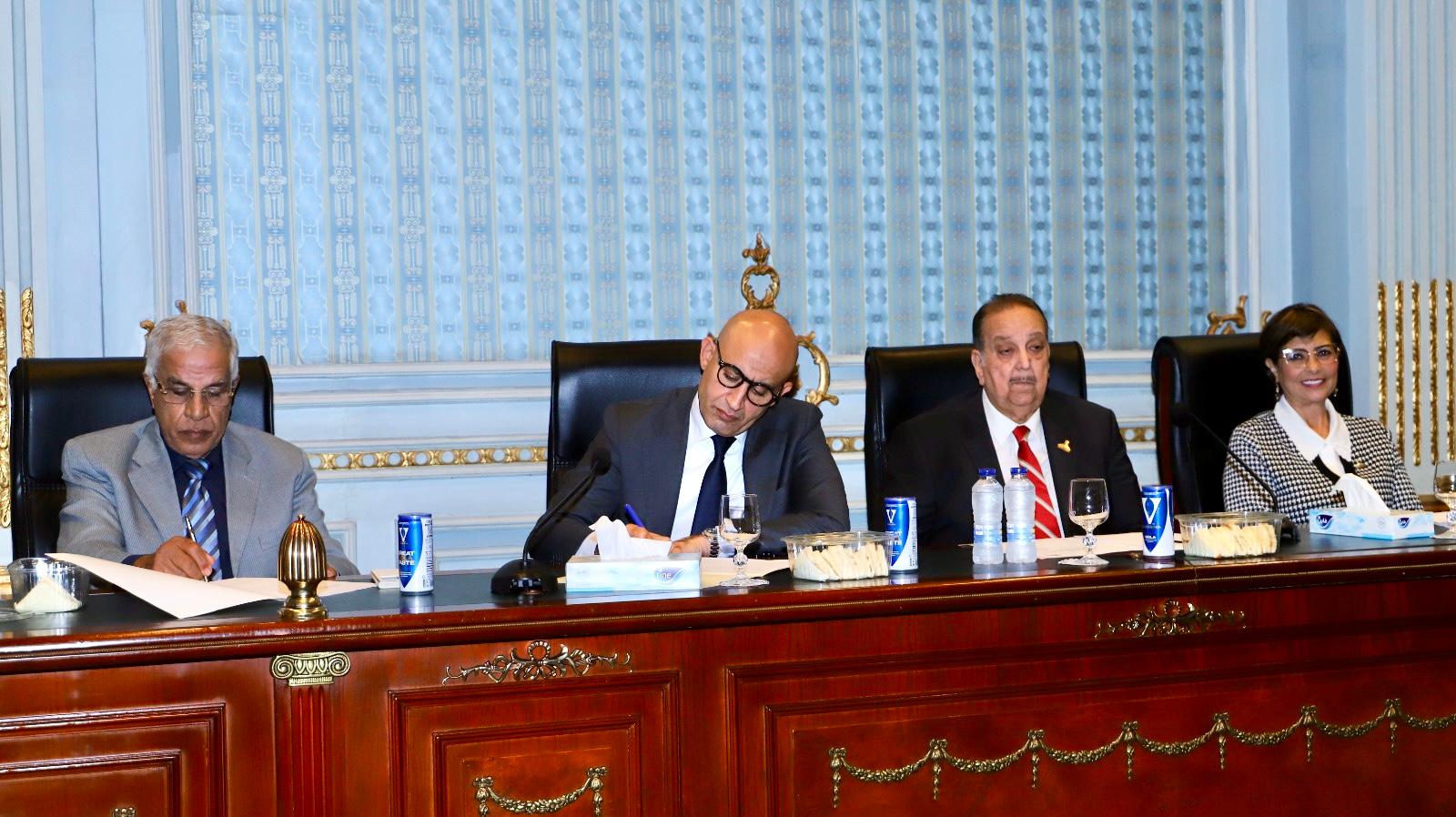Minister of Education reviews the Ministry's work plan before the Senate Education and Scientific Research Committee

Mr. Mohamed Abdel Latif, Minister of Education and Technical Education, reviewed the Ministry's work plan during the past period and ways to develop the educational process before the Senate Education and Scientific Research Committee.
This was attended by Dr. Mohamed Nabil Daabas, Chairman of the Committee, Major General Ahmed Ali Al-Badri, Deputy Chairman of the Committee, Dr. Randa Mohamed Mustafa, Deputy Chairman of the Committee, Nagih Mohamed Sayed, Secretary of the Committee, and members of the Committee.
On behalf of the Ministry, Dr. Ahmed Al-Mohammadi, Assistant Minister for Strategic Planning and Follow-up, Walid Maher, Director General of the General Administration of Political Communication at the Ministry, and Shady Zalta, Media Advisor and Official Spokesperson for the Ministry, also attended.
During the session, the Minister reviewed the executive procedures and mechanisms taken by the Ministry to overcome the challenges facing the educational process, including eliminating the problem of high student densities by 99%, and solving the problem of the shortage in the number of teachers, which represented (460) thousand teachers, as it was solved by 90%. He also pointed out the completion of the presidential initiative to compete to appoint 30 thousand teachers annually, in addition to using teachers by the hour.
The Minister also reviewed the procedures implemented by the Ministry to ensure discipline and regularity of the educational process, and attract students to school, by implementing the annual work system and setting controls for it, and issuing the school incentive and discipline regulations, in addition to improving the physical environment of schools, as well as developing student activities in schools.
The Minister added that the Ministry has taken a package of decisions related to performance evaluation throughout the academic year, with the aim of following up on student evaluation and increasing their ability to achieve academic achievement and develop their skills.
The Minister also spoke about the restructuring of the secondary stage, which was done according to international standards; To give the teacher the opportunity to provide a good educational process inside the classroom, with a number of credit hours for basic subjects, and to have the opportunity and time to teach the content, as well as develop students' skills, and complete the curriculum in the allocated time; in order to prepare a generation capable of competing with other countries, pointing out the need for education to keep pace with the labor market that is witnessing rapid changes.
The Minister explained that the cognitive content has been reformulated and distributed in its new system to emphasize national identity, in addition to developing religious education curricula in coordination with Al-Azhar Al-Sharif and the Church.
The decision was also issued to teach national identity subjects "Arabic language, religious education and social studies" in all schools where it is taught and grants international or foreign certificates or special (international) nature within the Arab Republic of Egypt, and to add these subjects to the total; in order to preserve the Egyptian national and cultural identity and consolidate belonging among students.
Minister Mohamed Abdel Latif pointed out that Egyptian-Japanese schools are among the most important successful educational models in Egypt, stressing that this type of education is being built upon and expanded with the participation of Japanese experts who supervise these schools, noting that 4 schools have entered the educational service this year, bringing their number to 55 schools.
During his participation in the Senate Education Committee session, the Minister responded to some inquiries regarding the development of technical education schools, updating specializations, and the existence of some challenges, noting that the Ministry is focusing on expanding applied technology schools, which currently number 81 schools, in cooperation with the private sector, to qualify students in these schools for the local and global labor market, stressing that this model is a breakthrough in the educational process and represents the future of Egypt in the coming period.
In response to questions about weekly assessments, the Minister indicated that weekly assessments within all educational systems represent an important factor in determining the level of students and following up on them, noting that there is no educational system that does not have a class booklet and school assignments, adding that the Ministry is also working on a plan to support reading among early-stage students.
At the end of the meeting, the members of the Senate Education and Scientific Research Committee praised the efforts made to develop the educational process and the measures taken by the Ministry during the past period, which contributed to attracting students to schools.
